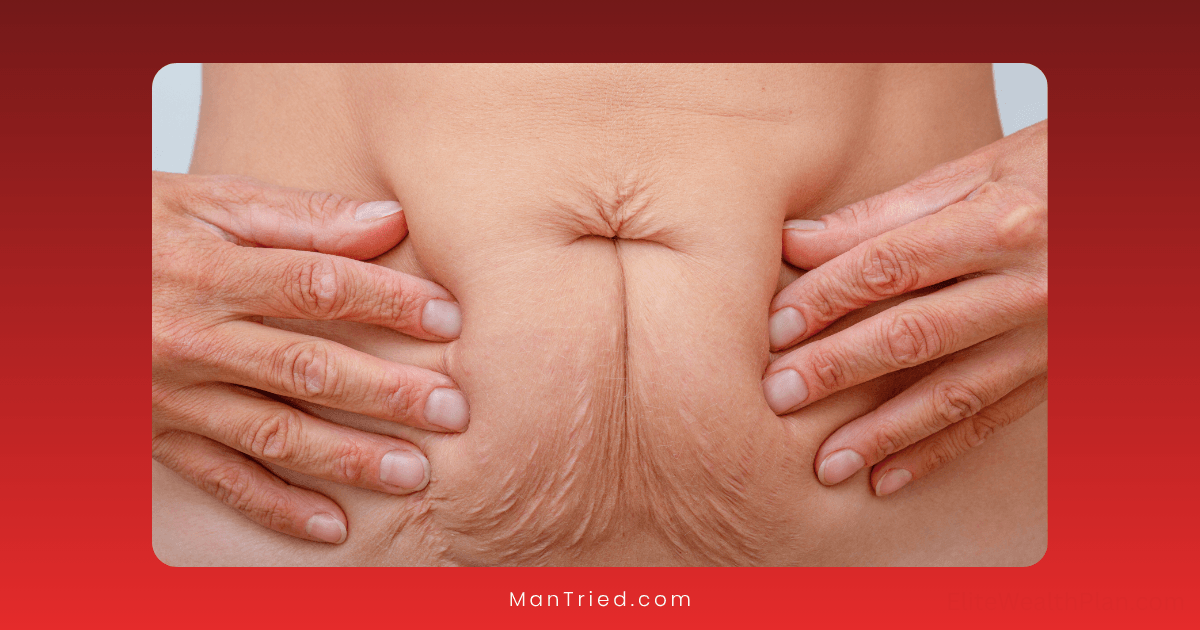Cortisol: The Stress Hormone That’s Killing Your Sex Drive

In today’s high-pressure world, stress has become a constant companion for many of us. While we often recognize its impact on our mood, sleep, and energy levels, there’s another significant casualty of chronic stress that receives far less attention: your sex drive.
At the center of this stress-libido connection is cortisol—often called the “stress hormone”—which, when chronically elevated, can devastate your sexual health. Understanding this relationship could be the key to reclaiming both your peace of mind and your passion.
The Stress-Sex Connection: How Cortisol Hijacks Your Libido
When you experience stress, your body activates a complex cascade of hormonal responses through what scientists call the hypothalamic-pituitary-adrenal (HPA) axis. According to the Cleveland Clinic, this system serves as your body’s primary stress response mechanism.
Here’s what happens:
- Your hypothalamus (in your brain) releases corticotropin-releasing hormone (CRH)
- This triggers your pituitary gland to release adrenocorticotropic hormone (ACTH)
- ACTH then signals your adrenal glands to pump out cortisol
In short bursts, this response is perfectly healthy—it’s what helps you escape danger or rise to challenges. But when stress becomes chronic, cortisol levels remain persistently elevated, creating a hormonal environment that’s toxic to your sex drive.
The Testosterone Connection
For men, the relationship between cortisol and sexual function largely revolves around testosterone. Research published by DUTCH Test reveals a clear inverse relationship between these hormones: as cortisol goes up, testosterone tends to go down.
This happens through several mechanisms:
- Direct suppression: Elevated cortisol directly inhibits testosterone production in the testes
- Precursor competition: Both hormones require the same building blocks, and when your body prioritizes cortisol, testosterone production suffers
- HPA-HPG interference: Cortisol disrupts the hypothalamic-pituitary-gonadal (HPG) axis, which regulates testosterone production
- Conversion increase: Stress accelerates the conversion of testosterone to estrogen, further reducing available testosterone
“This hormonal tug-of-war explains why periods of high stress often coincide with plummeting sexual desire,” explains endocrinologist Dr. Michael Stevens. “Your body essentially decides that survival takes precedence over reproduction.”
The impact can be dramatic. According to OneHealth, chronic stress can reduce testosterone levels by up to 15%, enough to trigger symptoms of low testosterone, including reduced libido and erectile difficulties.
Beyond Testosterone: Cortisol’s Direct Effects
While the testosterone connection is significant, cortisol also impacts sexual function through other pathways:
- Blood flow restriction: Cortisol constricts blood vessels, potentially limiting blood flow to the genitals, which is essential for arousal in both men and women
- Mood disruption: Elevated cortisol affects neurotransmitters like serotonin and dopamine, which play crucial roles in sexual desire and pleasure
- Energy diversion: High cortisol levels direct energy toward stress response and away from “non-essential” functions like reproduction
- Sleep disruption: Cortisol interferes with sleep quality, reducing the deep sleep phases when testosterone production peaks
Research published in the National Library of Medicine found that in healthy males, cortisol levels naturally decrease during sexual arousal and erection. However, in men with erectile dysfunction, this cortisol reduction doesn’t occur—suggesting that the inability to lower cortisol during sexual activity may be a key factor in sexual dysfunction.
Signs Your Stress Is Affecting Your Sex Life
How do you know if cortisol is the culprit behind your diminished desire? Look for these telltale signs:
1. The Stress-Libido Timeline
One of the most obvious indicators is timing. If you notice your sex drive plummeting during or after periods of intense stress—a major project at work, financial difficulties, relationship conflicts—cortisol is likely involved.
2. Morning Measurements
Cortisol naturally follows a daily rhythm, peaking in the morning and declining throughout the day. Similarly, testosterone is typically highest in the morning, which is why morning erections are a good indicator of hormonal health.
If you’ve noticed a decline in morning erections or morning sexual interest, it could signal a cortisol-testosterone imbalance.
3. Energy and Mood Patterns
Chronic stress doesn’t just affect libido—it creates a constellation of symptoms:
- Persistent fatigue despite adequate sleep
- Irritability or mood swings
- Difficulty concentrating
- Weight gain, particularly around the midsection
- Reduced muscle mass or strength
According to Dr. Brighten, these symptoms often accompany HPA axis dysfunction (sometimes called “adrenal fatigue”) and frequently coincide with low libido.
4. Sleep Disruption
A vicious cycle often emerges: stress elevates cortisol, which disrupts sleep, which further raises cortisol while reducing testosterone production.
If you’re experiencing both sleep difficulties and reduced sexual interest, addressing the cortisol component becomes essential.
The Science Behind Stress-Induced Sexual Dysfunction
The relationship between stress and sexual dysfunction is supported by robust scientific evidence:
- A study from the American Psychological Association found that men experiencing two or more stressful life events in the past year had lower sperm quality and quantity compared to those without significant stress.
- Research published in the Cleveland Clinic Men’s Health indicates that up to 1 in 5 men experience low libido at some point, with stress being a primary contributor.
- A clinical study found that just one week of sleep deprivation (a common result of high stress) can reduce testosterone levels by 10-15%—equivalent to aging 10-15 years in terms of hormonal health.
- Research in the National Library of Medicine demonstrates how chronic stress can physically alter brain structures involved in both stress regulation and sexual function, creating long-term changes that persist even after the stressor is removed.
Breaking the Cortisol-Libido Connection: Evidence-Based Solutions
The good news? This hormonal hijacking is reversible. Here are science-backed strategies to lower cortisol, boost testosterone, and reclaim your sex drive:
1. Strategic Exercise: Finding the Sweet Spot
Exercise is a powerful tool for managing cortisol and boosting testosterone, but timing and intensity matter:
- Resistance training: Research from Harvard Health shows that moderate to high-intensity resistance training 2-3 times weekly can increase testosterone by up to 30%.
- Moderate cardio: 30-45 minutes of moderate cardiovascular exercise 3-4 times weekly reduces cortisol without triggering additional stress responses.
- Avoid overtraining: Excessive endurance exercise can actually increase cortisol and decrease testosterone. If your workouts leave you exhausted rather than energized, you may be overtraining.
“The key is finding the exercise sweet spot,” explains exercise physiologist Dr. James Wilson. “Enough to stimulate testosterone production and reduce stress, but not so much that you create additional physical stress.”
2. Sleep Optimization: The Foundation of Hormonal Balance
Sleep may be the single most important factor in managing the cortisol-testosterone balance:
- Prioritize duration: Aim for 7-8 hours of uninterrupted sleep nightly.
- Optimize timing: Try to sleep during the same hours each night to support your natural cortisol rhythm.
- Create a sleep sanctuary: Keep your bedroom cool (65-68°F), dark, and quiet.
- Screen management: Avoid blue light from screens for at least 1 hour before bed, as it can disrupt melatonin production and raise cortisol.
- Consider sleep apnea screening: According to OneHealth, severe sleep apnea can reduce testosterone by up to 40%.
3. Nutrition Strategies for Hormonal Balance
Your diet significantly impacts both cortisol and testosterone levels:
- Maintain stable blood sugar: Cortisol rises when blood sugar drops, so aim for regular meals containing protein, healthy fats, and complex carbohydrates.
- Emphasize zinc-rich foods: Oysters, pumpkin seeds, beef, and crab are excellent sources of zinc, a mineral essential for testosterone production.
- Include healthy fats: Olive oil, avocados, nuts, and fatty fish provide the cholesterol needed for hormone production.
- Limit alcohol: Research shows that more than 14 drinks weekly can significantly lower testosterone levels.
- Moderate caffeine: While small amounts can be beneficial, excessive caffeine stimulates cortisol production.
4. Stress Management Techniques with Proven Results
Directly addressing stress is essential for cortisol management:
- Mindfulness meditation: Just 10-15 minutes daily has been shown to reduce cortisol levels by up to 20% in some studies.
- Deep breathing exercises: Practices like box breathing (inhale for 4 counts, hold for 4, exhale for 4, hold for 4) activate the parasympathetic nervous system, countering cortisol’s effects.
- Forest bathing: Spending time in nature reduces cortisol levels more effectively than the same amount of time in urban environments.
- Cognitive Behavioral Therapy (CBT): This therapeutic approach has been shown to not only reduce perceived stress but also lower measurable cortisol levels.
5. Supplements with Scientific Support
Several supplements show promise for managing cortisol and supporting testosterone:
- Ashwagandha: Multiple studies show this adaptogenic herb can reduce cortisol by 15-30% while increasing testosterone.
- Magnesium: This mineral blocks cortisol release and supports testosterone production. Aim for 300-400mg daily, preferably as magnesium glycinate or threonate.
- Vitamin D: Low vitamin D correlates with both high cortisol and low testosterone. Have your levels tested and supplement accordingly.
- Phosphatidylserine: This phospholipid has been shown to blunt cortisol response to stress, particularly in athletes.
“Supplements should complement, not replace, lifestyle changes,” cautions nutritionist Sarah Johnson. “The foundation should always be proper sleep, exercise, nutrition, and stress management.”
When to Seek Professional Help
While lifestyle changes can significantly impact cortisol and testosterone levels, sometimes professional intervention is necessary:
Signs you should consult a healthcare provider:
- Severe or persistent loss of libido despite lifestyle changes
- Erectile dysfunction that doesn’t improve with stress management
- Symptoms of clinical depression or anxiety
- Extreme fatigue that interferes with daily functioning
- Suspected sleep disorders like sleep apnea
Healthcare providers may recommend:
- Hormone testing: Comprehensive panels that measure cortisol patterns throughout the day and testosterone levels (both total and free)
- Testosterone replacement therapy: For men with clinically low levels (typically below 300 ng/dL)
- Medications: To address specific sexual dysfunctions or underlying conditions
- Therapeutic approaches: Such as cognitive behavioral therapy or sex therapy
Real Success Stories: Reclaiming Sexual Health
Mike, 42: “After a promotion that doubled my workload, my sex drive completely disappeared. Tests showed high cortisol and testosterone at the low end of normal. I implemented a strict sleep routine, started strength training three times weekly, and practiced meditation daily. Within three months, my libido returned to normal, and my relationship—which had been suffering—improved dramatically.”
John, 36: “Work stress and poor sleep had killed my sex drive. Rather than jumping to testosterone therapy, my doctor suggested cortisol management first. I cut back on caffeine, started yoga, and used a sleep tracking app to optimize my sleep. My morning erections returned within weeks, and my energy and desire followed.”
Robert, 51: “After my divorce, the stress tanked my testosterone and I developed ED that didn’t respond well to medication. Working with both an endocrinologist and therapist, I learned that my cortisol levels were consistently elevated. A comprehensive approach including stress management, nutritional changes, and temporarily using testosterone gel helped me recover both physically and emotionally.”
The Bottom Line
The connection between chronic stress, elevated cortisol, and diminished sexual function is clear and scientifically validated. In our high-pressure world, understanding and managing this relationship becomes essential for maintaining not just sexual health, but overall wellbeing.
By implementing strategies to manage cortisol—through optimized sleep, strategic exercise, balanced nutrition, stress management techniques, and targeted supplements—you can create a hormonal environment that supports healthy sexual function.
Remember that changes in libido can sometimes signal other health concerns, so persistent issues warrant a conversation with a healthcare provider. But for many men, addressing the cortisol component of sexual dysfunction offers a natural, effective path to reclaiming both peace of mind and passion.
Have you noticed a connection between stress and your sex drive? What strategies have helped you maintain balance? Share your experience in the comments below.






